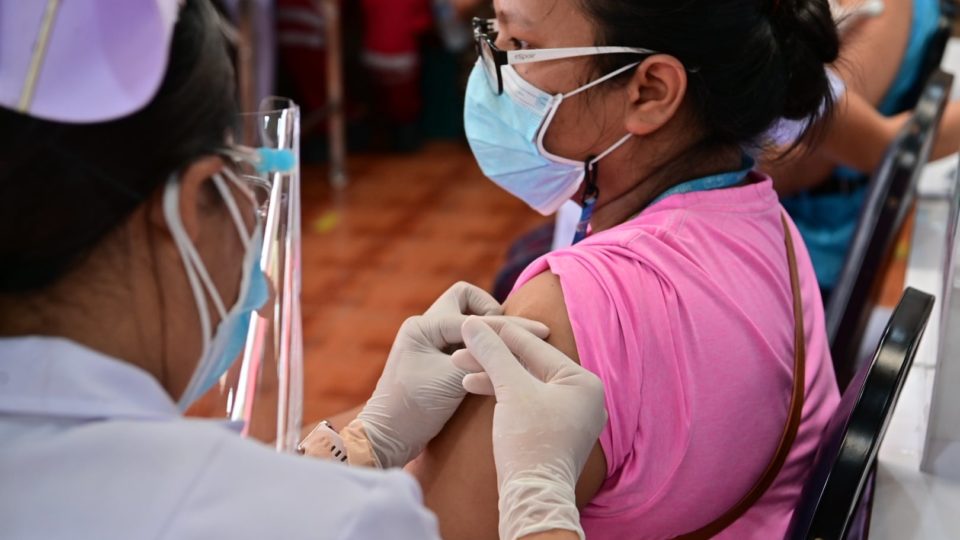Thailand is allowing doctors to mix the Sinovac and AstraZeneca vaccines in a bid to increase protection against highly transmissive coronavirus variants.
Health Minister Anutin Charnvirakul said on Monday afternoon that health officials have given the green light to inoculating the population with a dose of the Sinovac vaccine followed by a dose of AstraZeneca’s in hopes that it would boost their immunity against the infectious Delta variant currently spreading in Thailand.
Hospitals can proceed with such inoculations on medical workers immediately, Anutin said. The two doses must be administered three or four weeks apart.
Previously, more than 677,000 Thai medical workers received two doses of the China-made Sinovac vaccine, some of whom – at least 618 people – continued to contract the coronavirus. A vaccinated 30-year-old nurse died from COVID-19 on the weekend.
Medical workers and others who have received two doses of the Sinovac vaccine can get a third booster shot using AstraZeneca’s vaccine, Anutin said. They should receive the third dose three to four weeks after the second one.
Last week, a group of Thai researchers found that the Sinovac vaccine was 80% to 90% effective against the Alpha variant when given in two doses, but less effective in fending off the Delta variant, which has killed several people in recent weeks.
Thailand has received over 14 million doses from Sinovac and nearly 5 million doses from AstraZeneca.
The Southeast Asian country became the first nation that mixes and matches Sinovac and AstraZeneca.
The World Health Organization’s chief scientist, Soumya Swaminathan, on Monday said people should avoid mixing-and-matching COVID-19 vaccines from different manufacturers as it is “a little bit of a dangerous trend.”
The most common adverse side effects of Sinovac vaccines include dizziness, headache, elevated blood pressure and rash, while those who are injected with AstraZeneca’s vaccine have reported suffering from fever, chills, headache and muscle pain.




